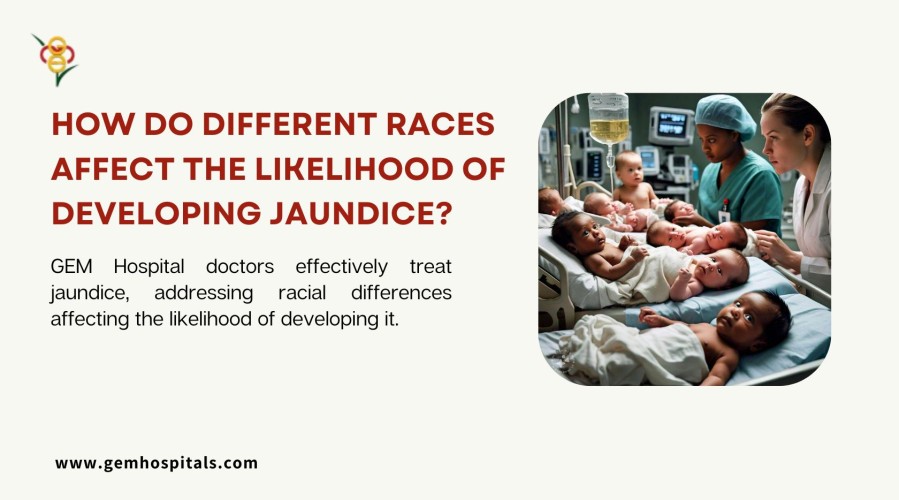Learn effective solutions for digestive problems with expert tips to improve gut health, reduce discomfort, and maintain a healthy digestive system.
How Do Different Races Affect the Likelihood of Developing Jaundice?

Jaundice is a condition where the yellowing of skin and eyes will be seen; this is due to elevated levels of bilirubin in the blood. Generally, bilirubin is a product of red blood cell breakdown which will be cleared out from the body but when the liver is unable to clear them the bilirubin level in the blood increases and results in jaundice, so jaundice is an underlying issue of the liver, gallbladder, and pancreas. This particular condition requires proper treatment to overcome it. Jaundice can affect people of any race but the research shows that there are racial and ethnic differences in both the severity and prevalence of the condition. In that case, understanding the basics behind this difference will help in the development of targeted medical treatments that ensure the healthcare of all populations, and make use of the below content for grabbing the knowledge.
Genetic factors and jaundice
Do you know that genetics also contribute to jaundice development? Some genetic conditions result in affecting the bilirubin metabolism of the body. This is more prevalent among specific racial groups. For example, Gilbert's syndrome is a kind of genetic disorder that brings up intermittent jaundice in the majority of people in European countries.
Glucose-6-phosphate dehydrogenase deficiency is another type of genetic disorder that leads to jaundice and they are most prevalent among the African, Asian, and Mediterranean peoples. People with this deficiency experience the rapid breakdown of red blood cells and that increases the bilirubin level in the blood becomes the indirect reason for jaundice. While looking to develop a new medication for jaundice, understanding genetic predispositions is crucial.
Racial disparities in neonatal jaundice
Neonatal jaundice is nothing new, it is one of the most common conditions that the majority of infants experience with approximately 60% of full-term and 80% of preterm infants getting neonatal jaundice. However, the severity of neonatal jaundice usually varies among different racial groups. The research studies have revealed that East Asian, Native American, and Mediterranean infants are greatly affected by this type of jaundice, and the development of severe hyperbilirubinemia could increase the threat. At the same time, African and American infants are at lower risk levels of developing neonatal jaundice.
Socioeconomic and environmental influences
While genetic factors play a crucial role in the development of jaundice socioeconomic and environmental factors also influence jaundice development and management. Enough access to healthcare, nutrition, and living conditions could have a greater impact on the likelihood of developing jaundice.
The countries that are listed as low-income and middle-income are reporting a higher percentage of jaundice because healthcare access is lesser and also due to their poor living conditions, typically due to malnutrition. This can affect the function of the liver and increase the chance of developing jaundice at any age. Additionally, minimal access to prenatal and postnatal care of neonates will delay the diagnosis and treatment of jaundice which may lead to serious complications.
The racial and ethnic minorities of high-income countries also face disparities in healthcare access and quality, this disparity indicating that the essentiality of the cultural competence of healthcare and targeted interventions should tally health outcomes for all racial and ethnic groups.
First of all, people should understand the reasons behind the development of jaundice and their severity in their health this gives them awareness. Next jaundice development is influenced by a complex interplay of genetic, socioeconomic, environmental, and cultural factors. Understanding the differences and noticing the underlying causes could improve the diagnosis procedure, treatment, and outcomes in all the individuals who are affected by jaundice.
For effective jaundice treatment, trust GEM Hospital’s experienced specialists. Receive personalized care and advanced solutions. Schedule your consultation now for comprehensive health management.
Blogs & Article
Explore current research trends in digestive health, including new treatments, advanced diagnostics, and innovations improving gut health and patient care.
Discover common digestive health myths and the real facts. Learn simple tips to improve gut health and maintain better digestion for a healthier life.


